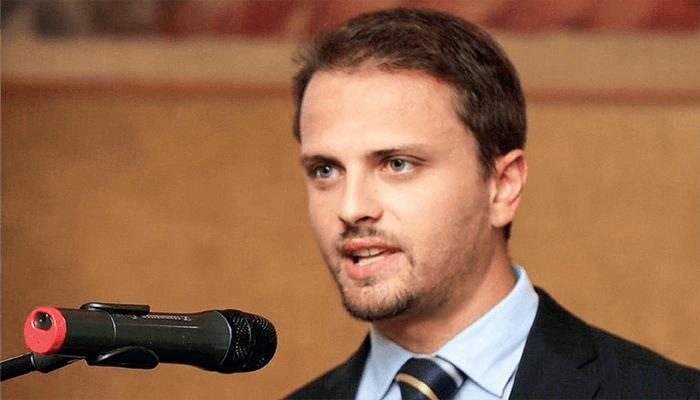How has your career progressed over the past four years?
As an associate professor, I do a lot of teaching and training. Guiding young scientists who are approaching the fascinating world of analytical chemistry can be a very rewarding experience – as long as you succeed in transferring your own enthusiasm. And I feel the responsibility of giving the right advice without clipping their wings. Unfortunately, the COVID-19 pandemic has negatively impacted all these activities, even with remote teaching and tutoring running smoothly.
The pandemic also affected my traveling routine. Without in-person conferences, the opportunities to meet colleagues, establish new collaborations, and share ideas and knowledge in a stimulating environment were lost. However, to put a positive spin on things, I have had the chance to catch up on the literature in my field, preparing manuscripts and writing reviews – all things that are sometimes overlooked.

On the research side of things, I consider myself very lucky to be part of a renowned group under the mentorship of Professor Luigi Mondello. His pioneering research into prototype development has profoundly inspired me to tackle challenging tasks by creating new solutions. I’ve also had some unique opportunities to work on state-of-the-art analytical instrumentation. My research has been especially focused on the development of advanced multidimensional techniques for analysis of essential oils and flavoring agents. My personal contribution to the field has consisted of developing instrumental prototypes based on two- and three-dimensional gas chromatography.
What is something you really enjoy about your current role?
Well, I am very fortunate because I like all aspects of my work, but something that stands out in particular is the versatility of my job. I get to do a variety of work, meet so many different people and travel. And, of course, flexible work hours during non-class days are always a plus!
I am also especially enthusiastic about “putting my hands on instruments” – trying new hardware configurations and finding practical solutions to overcome current limitations. It is usually a very rewarding experience. In parallel, I put that same effort in teaching, seeking out the most effective way to catch the students’ interest and get the best out of each of them.
Do you have any major career goals for the future?
Broadly, my ambition is to take the expertise and knowledge I have obtained over the years and transition into a wider environment with new responsibilities, such as training new team members. In addition, I will continue to play my role within the scientific community. Since 2018, I have been a Board member of the Italian Interdivisional Group of Separation Science, and the Italian Group for Stable Isotopes.
My long-term goals are also to expand my competence within the field of separation science and work toward establishing new areas of application. Personally, I would be most fulfilled by developing effective and sustainable solutions to present scientific problems that impact society.
What is the single-most exciting development in your field today?
In recent years, the use of natural compounds in the formulation of aromatics, cosmetics, foods and therapeutics has grown in popularity. As a consequence, essential oils and natural extracts have attracted the attention of separation scientists aiming for full and detailed chemical characterization. In this context, chromatography separation and mass spectrometry (MS) detection are the gold standard. Next to the tremendous technical developments in the field of MS analyzers, the availability of multidimensional chromatographic systems for routine applications has finally met the demand for fast and high-efficient front-end separation.
Additionally, the search for greener and cost-effective analytical solutions is a major trend in all fields of separation science. Modern instruments offer smaller footprints, lower energy demands, ultra-fast analysis, and high throughput. Moreover, they open the door to portable instrumentation, automation, integrated sampling and sample preparation in a more reproducible way. It is foreseeable that further progress in microfluidic devices will make multidimensional gas chromatography (MDGC) approaches even more flexible and high-performing, allowing for efficient sample transfer with a high degree of inertness and low dead volumes. Such positive features will permit us to overcome some bottlenecks associated with current MDGC techniques.
Any advice for young people entering analytical science?
Stay focused and aspire to the highest achievements – but be ready for unexpected failure. In other words: expect imperfection as a necessary part of everyday life!
Danilo Sciarrone is an Associate Professor of Analytical Chemistry at the University of Messina, Italy.




